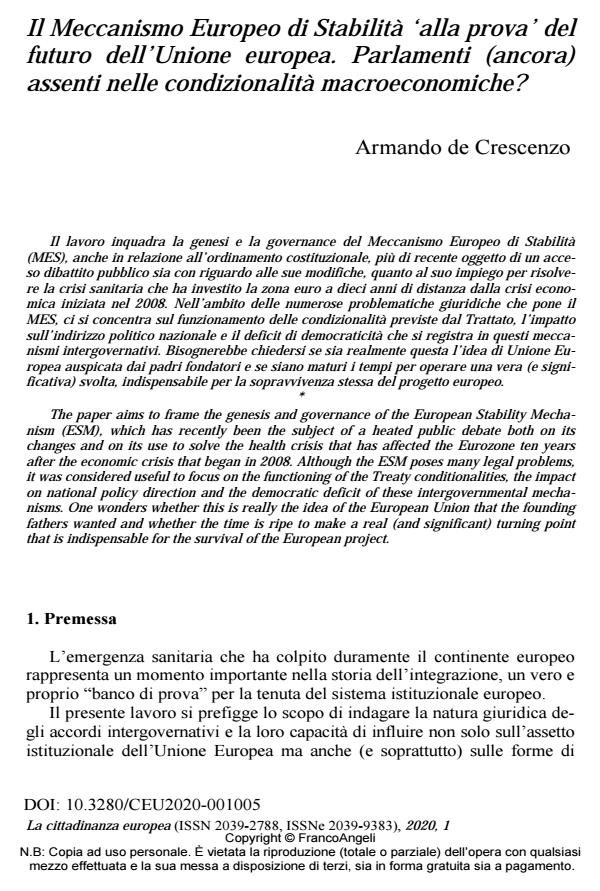Il Meccanismo Europeo di Stabilità ‘alla prova’ del futuro dell’Unione europea. Parlamenti (ancora) assenti nelle condizionalità macroeconomiche?
Journal title CITTADINANZA EUROPEA (LA)
Author/s Armando de Crescenzo
Publishing Year 2020 Issue 2020/1
Language Italian Pages 29 P. 133-161 File size 310 KB
DOI 10.3280/CEU2020-001005
DOI is like a bar code for intellectual property: to have more infomation
click here
Below, you can see the article first page
If you want to buy this article in PDF format, you can do it, following the instructions to buy download credits

FrancoAngeli is member of Publishers International Linking Association, Inc (PILA), a not-for-profit association which run the CrossRef service enabling links to and from online scholarly content.
The paper aims to frame the genesis and governance of the European Stability Mecha-nism (ESM), which has recently been the subject of a heated public debate both on its changes and on its use to solve the health crisis that has affected the Eurozone ten years after the eco-nomic crisis that began in 2008. Although the ESM poses many legal problems, it was con-sidered useful to focus on the functioning of the Treaty conditionalities, the impact on national policy direction and the democratic deficit of these intergovernmental mechanisms. One won-ders whether this is really the idea of the European Union that the founding fathers wanted and whether the time is ripe to make a real (and significant) turning point that is indispensa-ble for the survival of the European project.
Armando de Crescenzo, Il Meccanismo Europeo di Stabilità ‘alla prova’ del futuro dell’Unione europea. Parlamenti (ancora) assenti nelle condizionalità macroeconomiche? in "CITTADINANZA EUROPEA (LA)" 1/2020, pp 133-161, DOI: 10.3280/CEU2020-001005